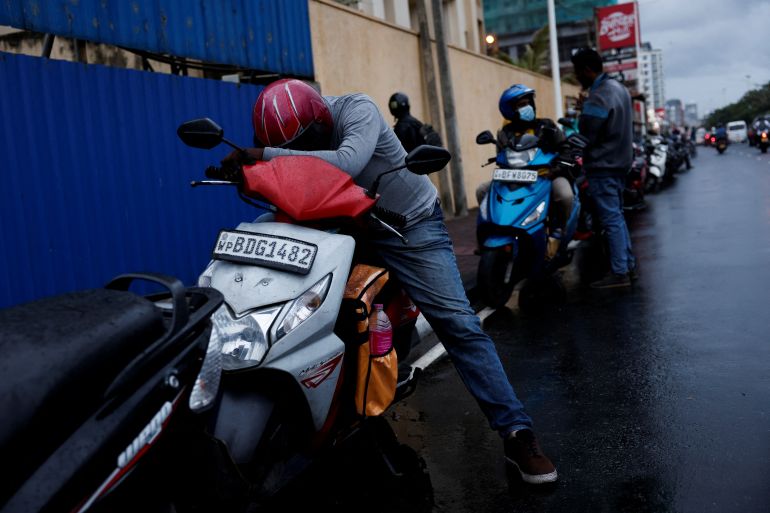Sri Lanka to send ministers to Russia seeking discounted oil
Officials will leave for Moscow on Monday to seek purchase of fuel on concessionary terms, the energy minister said.

Cash-strapped Sri Lanka has announced it will send ministers to Russia and Qatar to try and secure cheap oil a day after the government said it had all but run out of fuel.
Energy Minister Kanchana Wijesekera said two ministers will travel to Russia on Monday to discuss getting more oil following last month’s purchase of 90,000 tonnes of Siberian crude.
Keep reading
list of 3 itemsElectricity cuts hit Sri Lanka as key union goes on strike
Crisis-hit Sri Lanka allows gov’t workers 4-day week to grow food
That shipment was arranged through Coral Energy, a Dubai-based intermediary, but politicians have been urging the authorities to negotiate directly with President Vladimir Putin’s government.
“Two ministers are going to Russia and I will go to Qatar tomorrow to see if we can arrange concessionary terms,” Wijesekera told reporters in Colombo on Sunday.
Wijesekera had announced on Saturday that Sri Lanka was virtually out of petrol and diesel after several scheduled shipments were delayed indefinitely due to “banking” reasons.
Fuel reserves were sufficient to meet less than two days’ demand and it was being reserved for essential services, Wijesekera said, apologising for the situation.
The state-run Ceylon Petroleum Corporation on Sunday hiked the price for diesel by 15 percent to 460 rupees ($1.27) a litre and petrol by 22 percent to 550 rupees ($1.52).
Since the beginning of the year, diesel prices have gone up nearly fourfold and petrol prices have almost tripled.
Wijesekera said there would be an indefinite delay in getting new shipments of oil, and urged motorists not to queue up until he introduces a token system to a limited number of vehicles daily.
People, already waiting in kilometres-long, snaking queues outside pumps, are unlikely to get fuel as the government will focus on issuing the remaining stocks for public transport, power generation and medical services, Wijesekera said.
The military, which has already been deployed at fuel stations to quell unrest, will now issue tokens to those waiting, sometimes for days, he said, adding that ports and airports will be given fuel rations.
Meanwhile, the government extended a two-week closure of non-essential state institutions until further notice to save fuel, maintaining only a skeleton staff to provide minimum services.